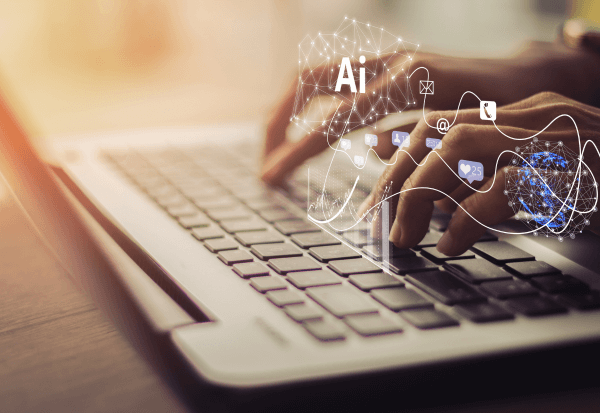Nowadays, AI is beyond being just another boardroom buzzword. It is at the heart of business strategy and execution. In 2024, companies leveraging data-driven analytics fasten their decision-making processes by nearly 30%, giving them an edge over their competitors. The question isn’t whether AI will shape the future of strategic thinking; it’s how effectively businesses can blend AI into their problem-solving frameworks.
The Evolving Role of Business Analysts in an AI-First World
Not long ago, business analysts spent much of their day collecting data, building dashboards, and interpreting trends using tools like Excel, Jira, and analytics platforms. While these tools helped to structure the chaos, much of the decision-making still rested on gut instincts, experience, and domain knowledge.
But now, things are different and have changed.
AI hasn’t replaced business analysts, but amplified the role and nature of work in the following instances:
- Routine data collection and cleaning tasks are automated easily, cutting the time spent on this activity.
- Machine learning tools can pick up subtle trends and insights that traditional analysis methods often overlook.
- With AI-powered dashboards and natural language queries, real-time decision-making is no longer a dream.
- Predictive models now anticipate trends and outcomes with increasing accuracy.
- Perhaps most importantly, decisions are less susceptible to human bias as they are grounded in data-driven logic.
Rather than replacing the analysts, AI gives them the opportunity to focus on business needs by improving the research and supporting them in their creative thinking, storytelling with data points, and making a visible impact on the business.
AI’s Role in Modern Business Analysis
In 2024, AI proved its impact on corporate decision-making. Gone are the days when strategy relied only on historical data and human intuition. With the help of advanced AI and ML models, organizations can model better customer personas and behaviors and make decisions with confidence.
According to a 2024 McKinsey report, 78% of companies had already integrated AI into at least one business function, up from 72% earlier in the year.
Making Decisions at the Data Speed
AI tools today can process a large volume of data in real time. This means decisions can be made on what’s happening now, not what happened last quarter.
A real-world example: A global fast-food giant is rolling out AI across 43,000+ locations through voice-activated drive-throughs and smart management systems. They have modernized operations and reduced issues like machine breakdowns and order errors. These upgrades aren’t just tech magic; they are changing the bottom line. Source: WallstreetJournal
Rethinking Strategy with AI at the Helm
More than a data cruncher, AI is becoming a strategic partner. Today’s business leaders are using simulation models powered by AI to explore scenarios and understand the potential impact of different decisions before taking a risk.
IBM AI Insights found that 85% of executives now follow a formal AI roadmap, preferring it over more reactive, opportunistic strategies.
Take Amazon’s 2024 update as an example. By incorporating generative AI into its product ecosystem, Amazon fine-tuned descriptions and recommendations to reflect each shopper’s habits. The result? More personalized experiences, higher satisfaction, and stronger engagement.
This shift from static planning to agile, AI-assisted modeling has completely redefined what strategic planning looks like.
Stronger & Smarter Risk Management
One of the biggest transformations AI has brought is around risk. In the past, analysts would look at historical patterns to predict risk. But now AI can monitor live data streams and alert organizations to risks as they emerge before humans even notice them.
A 2024 PwC survey shows that 44% of U.S. executives consider responsible AI practices crucial in mitigating AI-driven risks. Meanwhile, 66% of tech leaders surveyed in 2025 said cybersecurity remains their top concern (Sources: PwC). AI, in this context, isn’t just a shield; it’s a smart, proactive one that evolves with emerging threats.
Ethics in the Age of Algorithms
As AI pushes itself deeper into strategic decisions, ethical concerns are coming into sharp focus. Despite 77% of executives expressing confidence in their teams’ ability to use AI responsibly, only 24% empower their teams to make ethical calls independently. That’s a significant gap and a wake-up call. Source: Deloitte’s 2024 study
Why and how does this matter? Because AI systems are only as fair as the data we feed them. Without proper vigilance, biases would creep in and direct the decisions in unwanted ways, especially in sensitive areas like hiring, customer segmentation, or financial risk scoring.
Leading organizations are now embedding ethical guidelines into their AI workflows, ensuring transparency, accountability, and continuous audits to keep things fair.
Looking Ahead: AI and the Analyst’s New Frontier
Business analysts aren’t being left behind; they’re being redefined. They’re no longer just interpreters of data but architects of change. AI is helping them work smarter, act faster, and think bigger, making them better decision-makers than before.
By 2025, AI’s influence on strategic decisions will be the norm, not the exception. Organizations that harness this potential will adapt faster and lead the way forward.
AI is transforming how we make decisions, manage risks, plan strategies, and understand our customers in ways that were unimaginable just a few years ago. However, to truly unlock its potential, businesses must pair technological innovation with ethical responsibility and human insight.
The future isn’t about man versus machine. It’s about how well we can work together.

is a Product Manager – Product Engineering Services at Happiest Minds Technologies with hands on experience in business analysis across all phases of the product life cycle. He has played various roles across the product management spectrum with a strong interest in AI & drone related technologies, P2P lending and HealthTech.
Tarun holds a bachelor’s degree in computer science and engineering and a master’s degree in Product Management. He believes that a combination of innovative technology solutions and disruptive business models is the key to achieving sustainable business transformation.








